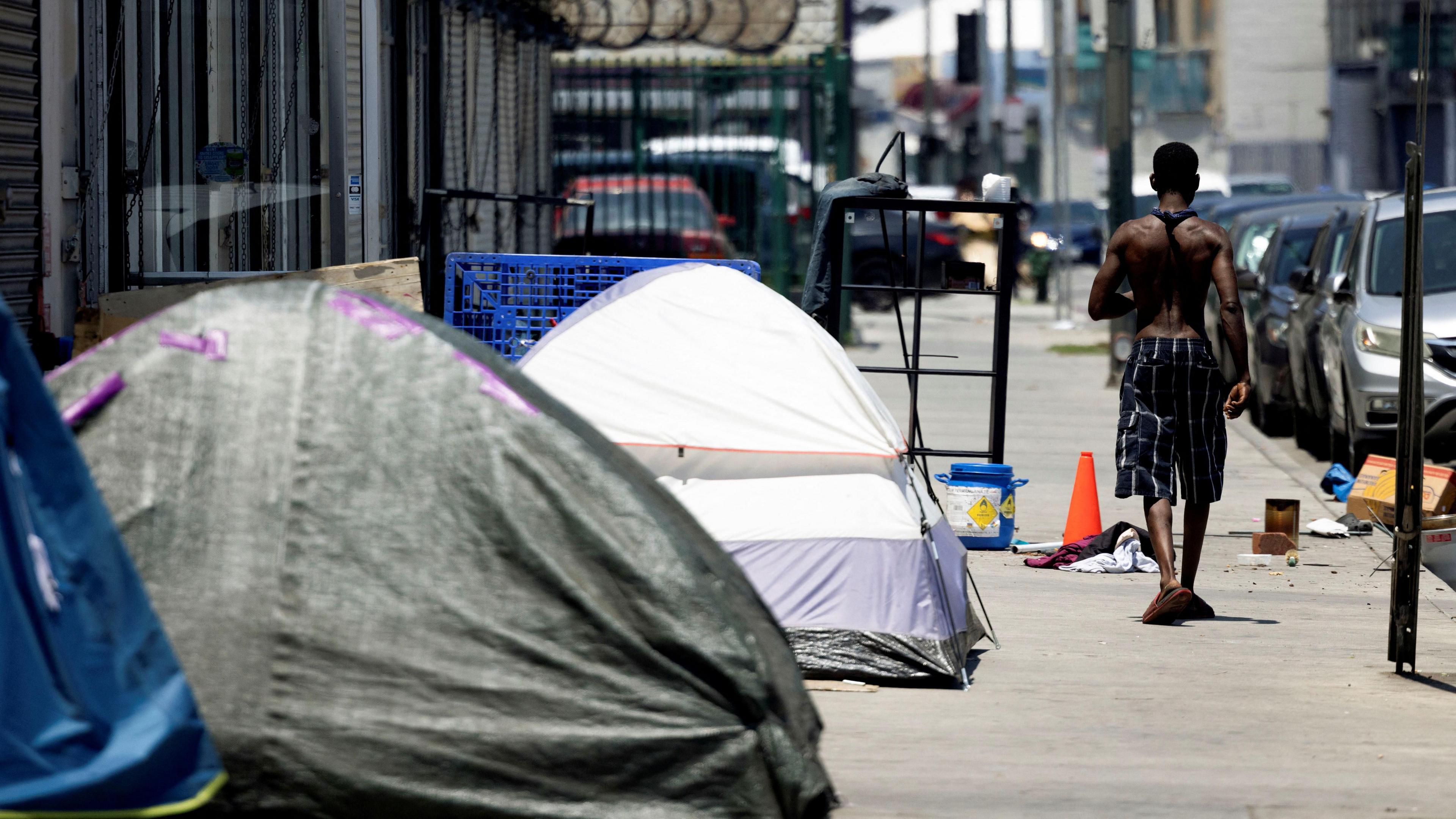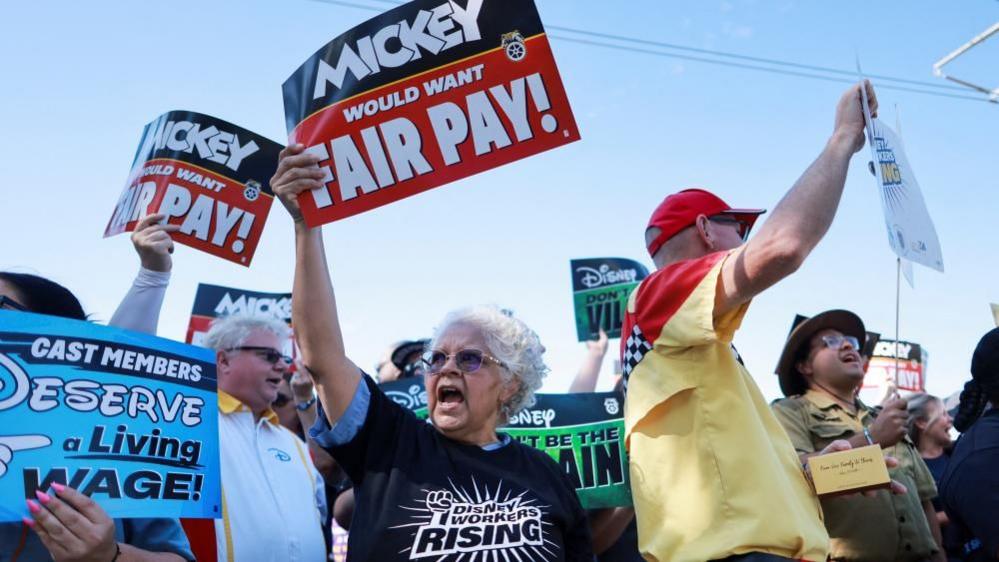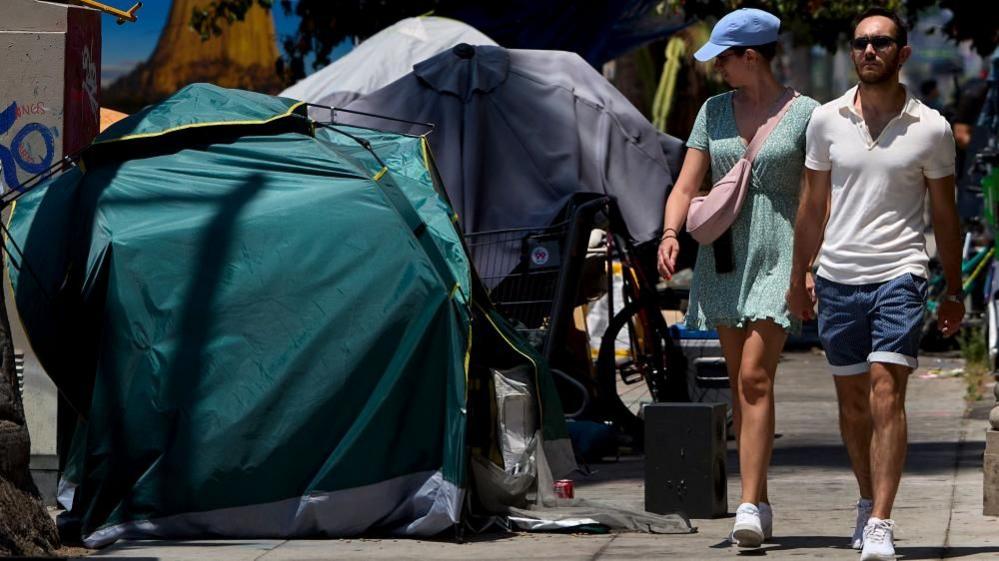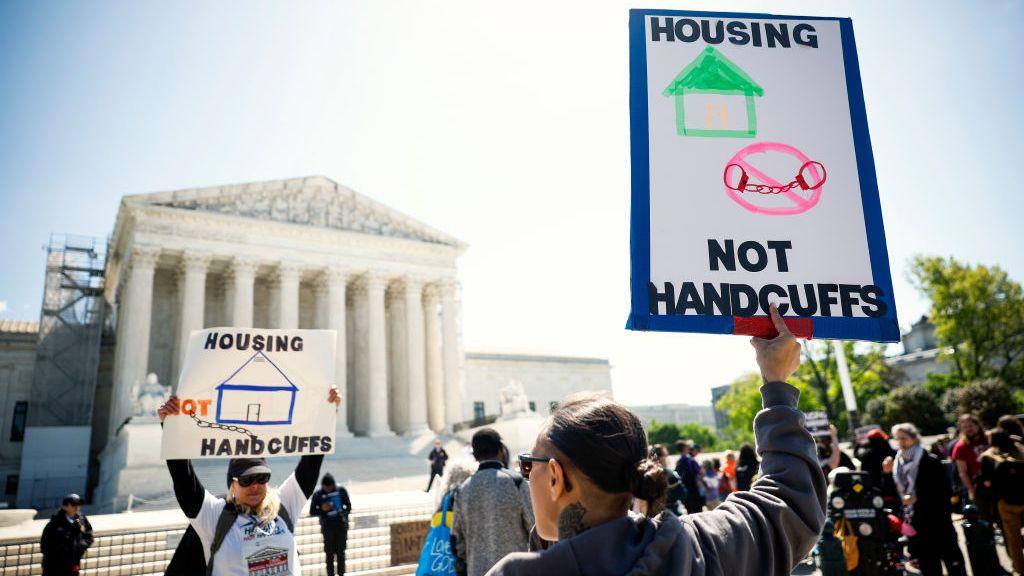California orders homeless camps be dismantled

- Published
California Governor Gavin Newsom has ordered homeless encampments to be dismantled across the state in the wake of a US Supreme Court ruling that allowed cities to ban people from sleeping in outdoor public places.
The executive order issued on Thursday only applies to state agencies and does not directly require local municipalities to take action.
“This executive order directs state agencies to move urgently to address dangerous encampments while supporting and assisting the individuals living in them — and provides guidance for cities and counties to do the same,” Mr Newson said in a statement.
“There are simply no more excuses. It’s time for everyone to do their part.”
California has some of the highest concentrations of homeless in the country and despite millions of dollars of investment, encampments continue to line sidewalks, beaches and under freeways. A federal report, external noted the state accounts for nearly half of the country's unsheltered population.
While Mr Newsom's order does not require local officials to remove the encampments that are seen throughout urban parts of the state, his administration can threaten to withhold state funds from counties or cities that do not take action aligning with state policy.
Critics and homeless advocates argue that criminalising homelessness does not solve the root issues, and further stigmatises people in need. Dismantling encampments means people can lose all of their possessions, including important legal documents, medications and other necessary items.
San Francisco, California's fourth most populous city, had previously cheered the Supreme Court decision in the case Grants Pass v Johnson, and has recently said it has already begun to remove tents.
The governor's order comes as Republicans criticise Democrats for homeless problems that are affecting many American cities, many of which are run by Democratic local governments.
Kamala Harris, a native of California's Bay Area who served as San Francisco district attorney before becoming a senator and then vice-president, has recently launched her bid to be the Democratic nominee to run against Republican Donald Trump for president in November's election. Republicans are keen to tie her political record to urban issues, including homelessness, crime and drug use.
Mr Newsom, who is also a Democrat, is widely believed to have ambitions for higher office, including the presidency.
California, with its high cost of housing, had an estimated 180,000 people in 2023 living without permanent shelter, according to an annual report from the US Department of Housing and Urban Development.
Homelessness is on the rise in the US, fuelled in part by chronic shortages of affordable housing. Around 653,000 people did not have homes in 2023, the largest number since tracking began in 2007, according to US government figures.
Experts who work with homeless people condemned the decision.
California non-profit group People Assisting the Homeless (Path) said in a statement that organisations that provide services to the homeless "were not consulted" on the governor's order.
The group said Newsom's order will "push vulnerable residents" off state property and "will not only be counterproductive but will set our efforts back tremendously".
Scout Katovich, a lawyer for the American Civil Liberties Union (ACLU), told BBC News that Mr Newsom "is taking the conservative Supreme Court up on its invitation to make homelessness a crime”.
She added that the policy is "draconian", "ineffective and potentially cruel" and "trampling on the rights of unhoused people, and pushing them from place to place regardless of the harm it causes".
- Published20 July 2024

- Published5 July 2024

- Published28 June 2024
